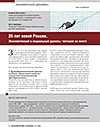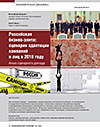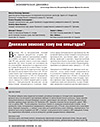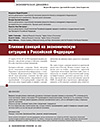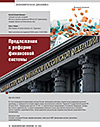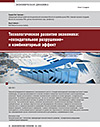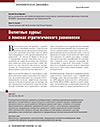25 Years of New Russia. Economic and Social Level: Remaining at a Standstill
The article analyzes three periods of the Russian economy: the transformation crisis of 1990–1998, characterized by depth and duration, the period of regenerative economic recovery in 1999–2008, during which a shift into nationalization and monopolization of the economy took place, as well as the period of 2009–2017, called the “lost decade” by the author, the period of deep financial and socio-economic crisis as part of the global world crisis. Possible prospects for development and ways of entrance into high-quality significant socio-economic growth are described.



